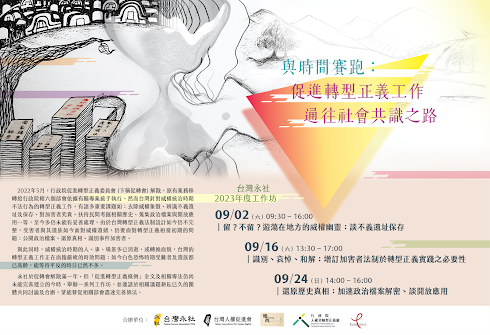Huang Di-ying 黃帝穎
(Huang Di-ying is a lawyer and director of Taiwan Forever Association)
(作者為律師、永社理事)
Translated by Perry Svensson
TAIPEI TIMES / Editorials 2017.04.25
http://www.taipeitimes.com/News/editorials/archives/2017/04/25/2003669360
After the legislature on Wednesday decided to initiate the first review of the draft pension reform act, groups opposing the reform proposals began a violent protest outside the legislature. They even assaulted county commissioners, mayors and legislators entering the building and some of the protesters wondered what was wrong with that, saying: “If the Sunflower movement protesters could do it, why can’t we?”
In a play on words alluding to the Sunflower movement, these protesters are now being called the “No-money-to-spend movement.”
The guiding principle for the movement opposing pension reforms is to protect their own vested interests, while the Sunflower movement was fighting for a loftier reason — the public interest against the opaque handling of cross-strait service trade agreement negotiations.
There is no comparing the two, so the discussion should stick to whether the anti-reform protesters’ violent behavior is in line with a court decision that civil disobedience could offset illegal behavior.
The key factor that caused the Taipei District Court to arrive at a not-guilty verdict in the case against Lin Fei-fan (林飛帆) and the other Sunflower movement protesters for occupying the main chamber of the Legislative Yuan was that they met seven requirements of civil disobedience which offset any legal violations.
Applying these seven factors to the behavior of the anti-reform protesters who assaulted legislators and other officials makes it clear that they do not meet the requirements.
So, legally speaking, they cannot refer to the Sunflower movement verdict.
The fourth of the seven conditions for civil disobedience requires “open and non-violent behavior,” meaning that then-premier Jiang Yi-huah (江宜樺) could freely visit the legislature and engage in dialogue with the protesters without being assaulted by the Sunflower students in the way that officials and legislators were beaten by the anti-reform protesters.
The court’s sixth condition for civil disobedience was that there must be “an element of necessity, in that there must be no other legally effective methods available.”
The Sunflower movement was a protest against the cross-strait service trade agreement, and had the agreement been passed, there would be no more legal recourse for the students to address the situation, which was the reason why the court came to the conclusion that the protest met the necessity requirement.
If the pension reform bill is passed, on the other hand, the protesters would still have other avenues for addressing the situation — they could file an administrative appeal and even turn to the Council of Grand Justices for a constitutional interpretation of the decision.
The protesters against pension reforms abandoned seeking redress through legal channels and instead decided to beat up legislators and officials. This is not only an ugly way of defending their vested interests, but it also lags far behind the moral vantage point of the Sunflower movement.
From a legal point of view, the protesters against reform do not meet the requirements for civil disobedience, and they are fundamentally unworthy of comparison with the Sunflower movement.


